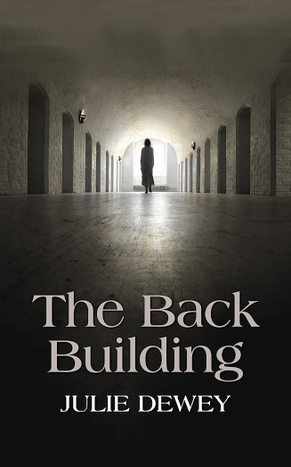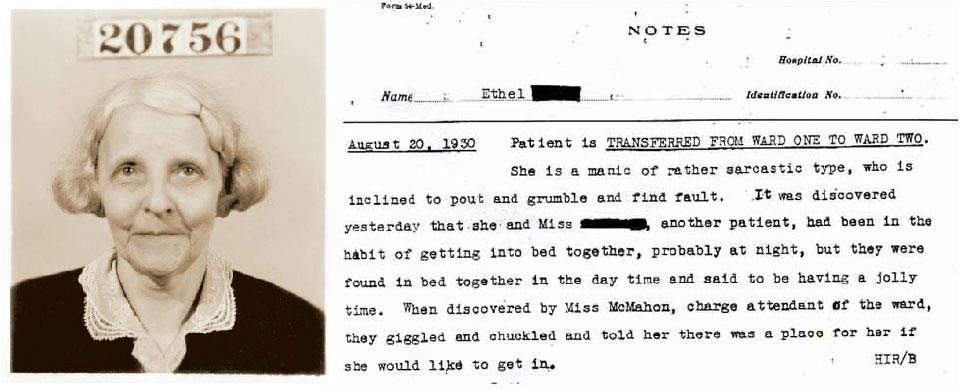
Publication Date: October 30, 2014
JWD Press
Formats: Ebook, Paperback
ISBN: 978-1503038844
Pages: 196
Genre: Historical Fiction
Iona Mueller arrives alone at the Willard Asylum for the Insane in this epic tale that spans a century. Through the Mueller family we take a deep look at what it means to be mentally ill in the year 1915 and in the present day.
By the time she reached fifteen years old, Iona had failed to become a “proper young lady” which profoundly concerned her parents. Her one and only friend, Hetty, the family maid, warned her not to disobey them but Iona couldn’t help herself. Iona’s quirk of counting steps may have been overlooked but when her mother and father learned of her exploits in the woods near her home in Ithaca, New York, she was taken to the town doctor. The doctor took one look at her self-cut short, mangled hair, learned of her bizarre behavior, and declared her insane.
At Willard Asylum on Seneca Lake there were plenty of activities to occupy her, including the job she procured working in the barn. Besides, she knew she was not anything like the crazy patients that banged their heads against the cinder walls until they bled or ran naked through the hallways. She was disobedient, that was true, and she would change. If only her parents would accept her correspondence and allow her to return home.
Iona’s new roommate, Cat, made every night a fight for survival. When Iona was caught trying to run away she was sent to the second ward, where her fate was sealed. Subject to tranquilizers and hydrotherapy, ice baths and physical beatings, Iona had only one thing on her mind. She had to stay away from the back building. Once you were placed there you were never seen again.
Iona met James at the institution’s barn. His kindness made the deprivation more bearable. He recognized that the violet hollows beneath her eyes, the bruises on her arms, and her apparent unraveling were the effect of the second ward. A plan was put into place, one that would remove Iona from harm’s way permanently.
In present day, it is Jenna, a young relative of Iona’s, who is plagued with mental illness. Jenna’s odd behaviors, bizarre language, and confusion disrupt her once perfectly normal life. Jenna’s family members trace their roots back to Iona in hopes of understanding their predisposition to mental illness. The journey leads them to an amazing discovery of the suitcases left behind by hundreds of patients at the Willard Asylum.
Review:
Iona Mueller grew up in an affluent home in Ithaca, NY in the early 1900's. Iona's mother wanted her to be the perfect young lady with skills in cooking, sewing, and keeping the house so Iona would be ready to marry. Iona however, would rather set traps for animals like her brothers and take care of the chickens. Iona had other quirks that made her parents upset and caused her to not make friends at school, she always counted her steps and had only befriended the maid, Hetty. When Iona has an outburst, her parents deliver her to the Willard Asylum. Iona has a difficult time at Willard, but also learns how to deal with her illness. She finds meaning working in the stables and befriends James, a farm hand. When Iona's life becomes endangered at Willard, her and another inmate, Cat, make a break for town and escape the harsh treatment at Willard. Years later, Iona's great-granddaughter, Jenna is starting to display strange behaviors. Jenna went from being an extrovert, to being afraid of everything and licking different surfaces. Jenna's grandmother remembers Iona's own mental health issues and goes on a search for any information about Iona that might be able to help Jenna. She is able to locate Iona's actual suitcase from when she was first brought to the asylum.
I was first drawn to this book because it is set near where I live and I know of the Willard Asylum. I also have experience working with people who happen to have mental health diagnosis. The aspects of the links with the suitcases found at the Willard also drew me in (I've included more information on the suitcases below, they really exist!) . Iona's story was intruiging; at first she seems like a perfectly normal girl who is a bit on the tomboy side, who likes to count things and who has very strict parents. Iona is endearing, even when she is skinning a rabbit; she is helping to feed Hetty's family. I felt for her when she had trouble making friends at school and when she is sent to Willard. When the seriousness of her mental health issues are revealed, it is a shock. I can tell that the author did a lot of research into the Willard Asylum and the treatment of the patients there. Iona's experience probably mirrored many of the real life patients that were kept there. Iona was lucky and made an escape from the Willard with the help of Cat, Iona was able to live her life with the person she fell in love with working at Willard. I was a little disappointed in the instant love connection between James and Iona, but it did enable Iona's character to continue her story through her great-granddaughter. I did appreciate the comparisons and contrasts of the mental health system in the past and present with Iona and Jenna's stories. Our medical treatment for people with mental health diagnoses has improved greatly, but still carries a terrible stigma that both Iona and Jenna's families felt. I really wanted the discovery of Iona's suitcase to lend more to the story and maybe reveal more secrets to her past, but the story was still rewarding.
This book was received for free in return for an honest review.

Julie Dewey is the author of four novels, including Forgetting Tabitha: The Story of an Orphan Train Rider, One Thousand Porches, The Back Building, and Cat, Book 1 of the Livin Large Series. Two have been on Amazon’s Top 100 Book List. She resides in Central New York with her husband and two children.
For more information please visit Julie Dewey’s website. You can also connect with her on Facebook.
I did not understand what it meant to be mentally ill. I felt fine, unabridged in both mind and body. I was aware of myself and my surroundings and didn’t suffer any breaks from reality. I didn’t feel overly sad or happy, or even angry. My parents simply didn’t understand me. I liked my new haircut and the freedom from its previous weight around my neck, and I saw no reason why I shouldn’t wear it short. I did my counting in my head so no one was bothered. I wouldn’t miss the constant nagging to be a perfect young lady, but I would miss Hetty. She was the only friend I had in the world and I made a vow to follow the doctors’ orders so that I could get back to the farm, andback to her.
The drive to Willard took less than one hour. The hospital was situated along Seneca Lake and was quite pretty if not for the imposing barbed wire fencing all along the north side.
“The fence was put in place to keep the thieves out.” The larger of the two men with the twitchy nose said, sensing my distress. He told me that the gardens had been thinned out by thieving migrant workers and that they had to put up the fence to keep them from whittling downthe food stores. Also, in recent years people came in droves to witness the lunatics in the asylum as if they expected to see patients with two heads. I felt satisfied but stunned by this honest answer, and suddenly grateful for the fence. I didn’t wish to be heckled by oglers.
“Pardon me, Miss, but my suitcase hasn’t been retrieved. May I please have it?” I suddenly grew anxious that my possessions were out of my sight. Nerves were getting the better of me and I felt that I could be sick at any moment. I bit my nails and tasted the blood.
“It will be brought to your room as soon as we go through it. We need to catalog all of its contents, I am sure you understand.” She said to me dismissively.
“Oh. Okay.” I took a deep breath and stood up feeling woozy. I grabbed the edge of the desk to secure myself and then felt more stable.
“Now, then, let’s show you around and get you to your room.” The administrator stood up and led me out of the small office space she inhabited and through the main building towards a large hall. I tried counting the paces but found it difficult because of all the corners and hallways.
“Look around. Everywhere your eye can see is part of the Willard Asylum, excuse me, Willard Hospital. We have over six hundred acres on our property. The land is used for everything from a working farm, piggery and its slaughterhouse, to a dairy, vegetable gardens, and a firehouse. We have a beauty salon, a chapel, a bakery, laundry, and we even have a hall solely for entertainment. Here it is now; Hadley Hall has a bowling alley and theater too. Do you like to bowl, Iona?”
“I have never bowled before, Ma’am.” I said, feeling overwhelmed and shy. I was missing my family and the familiarity of my own home and farm and could hardly get excited about bowling.
“Well, it also has a projection room, a basketball court, and a snack bar. We even serve hot buttered popcorn on movie night. You’ll like that.”
“I am sure I will.” I muttered more for her benefit than my own.
“Here we have Elliot Hall, over there is the Campus Hospital, and off in the distance you can see a few of our houses. That’s where thesuperintendent stays as well as the steward.” She pointed out the buildings that surrounded us.
“What’s that building?” I asked, pointing to a shorter brick building that was rather unremarkable.
“That’s the nurses’ training school. Now, here we are at your hall. The third ward is located on the third floor. You’ll have no trouble remembering that.”
We walked through a large set of double doors, the windows inside were large and expansive letting in a bounty of light. Iron grates protected them from the outside with military precision. I was led by the administrator to my adequate room (eighty-six paces by my first count from the building entrance to my room). The room was a nine by eleven foot space and for now I had it all to myself. The mattress looked brand new and I had a wardrobe and small desk. The furniture was not overly decorative but it had enough flourishes that it felt homey and comfortable as opposed to institutional. I imagined it was all made right here on the campus in the sewing room and wood shop.
Inside the wardrobe hung five sets of dresses. One dress stood out from the others because it was slightly fancier, I assumed this was mySunday church attire. There were four full suits of underclothes, two pairs of shoes and one pair of slippers. There was also a pretty shawl in a light blue color and a hood with a hat. I was confused because I brought my own clothing with me, but these outfits seemed to be my size. I reached out to feel the cotton gowns and I supposed they would be comfortable enough. I thanked God that they weren’t made of scratchy wool like a few of my ensembles left in my closet at home.
“I’ll leave you to your room for now. Emily will be here shortly to meet you. Enjoy your time here.” The administrator closed me into my room, I thought her parting comments were an odd thing to say to a patient. I wasn’t on vacation. Although my parents insinuated that I should relish my much needed rest and relaxation away from whatever stresses I had.
I sat in the corner of my room, knees pulled to my chest and cried. Loneliness crept in all around me and my heart broke in two.










 RSS Feed
RSS Feed



